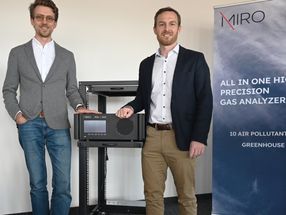New study supports use of PCA3-based test for prostate cancer diagnosis
European commercialization in progress
New clinical data from a study of 570 men published in the peer-reviewed Journal of urology (179:15871592, 2008) supports the use of a PCA3-based test as a tool for diagnosing prostate cancer. The new study confirms that PCA3, DiagnoCure's highly specific prostate cancer marker, and the world's first gene-based urine test to help detect prostate cancer, can provide clinicians with valuable information that helps guide diagnosis.
The PCA3 test addresses some of the limitations of existing diagnostic tools. For example, Prostate Specific Antigen (PSA) is commonly elevated for reasons not related to prostate cancer, and as a result, PSA testing produces many "false positive" results, which can burden patients and the healthcare system. In contrast, the molecular marker PCA3 is elevated only in cancerous prostate tissue, making it a more specific indicator of cancer than PSA, and potentially reducing the number of unnecessary biopsies.
The study also confirms that the PCA3 score correlates with the probability of positive biopsy. In the study, men with a PCA3 score of less than five showed a positive biopsy rate of 14 percent; however, a PCA3 score greater than 100 showed a 69 percent biopsy positive rate.
"This study is one more piece of evidence that PCA3 is truly an accurate marker for prostate cancer", said John Schafer, President and CEO of DiagnoCure. "The compelling results should support the adoption of the test by physicians who are in need of better tools to help their patients facing prostate cancer questions."
The release of this study coincides with significant commercialization progress made on PCA3 in Europe. In December, Gen-Probe, to which DiagnoCure granted worldwide diagnostic rights to PCA3 in 2003, announced that they were increasing their sales and marketing team in the region. More recently, the Broomfield Hospital in Chelmsford, U.K., began to offer the PCA3 test to their patients, with the National Health Service assuming the cost through their local trust.
Most read news
Organizations
Other news from the department research and development

Get the analytics and lab tech industry in your inbox
By submitting this form you agree that LUMITOS AG will send you the newsletter(s) selected above by email. Your data will not be passed on to third parties. Your data will be stored and processed in accordance with our data protection regulations. LUMITOS may contact you by email for the purpose of advertising or market and opinion surveys. You can revoke your consent at any time without giving reasons to LUMITOS AG, Ernst-Augustin-Str. 2, 12489 Berlin, Germany or by e-mail at revoke@lumitos.com with effect for the future. In addition, each email contains a link to unsubscribe from the corresponding newsletter.





























































